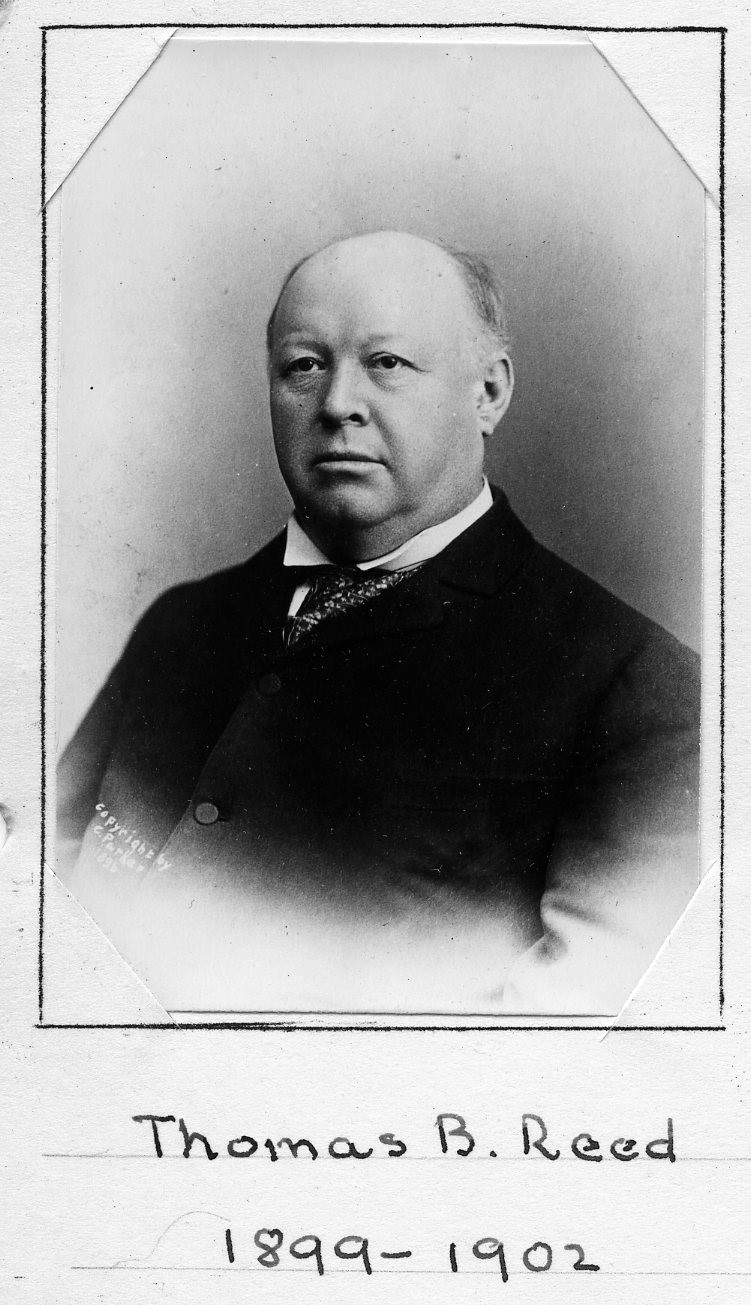Lawyer/Speaker of the U.S. House
Centurion, 1899–1902
Born 18 October 1839 in Portland, Maine
Died 7 December 1902 in Washington, District of Columbia
Buried Evergreen Cemetery , Portland, Maine
, Portland, Maine
Proposed by John Woodruff Simpson and William M. Barnum
Elected 2 December 1899 at age sixty
Century Memorial
What was a misfortune for the public life of the nation was a piece of good luck for The Century when, in 1899, Thomas B. Reed resigned his seat in the House as a Representative from Maine, and removed to New York to become a member of the Club. It is needless to recite even summarily his services in Congress. His eminence in character and ability was as absolute as was his authority as Speaker, and much more ungrudgingly acknowledged by the party to which he did not belong. In our own circle he won easily, and bore with grace and dignity and a charm peculiarly his own, the title of a very Prince of good fellows. He was a man of large resources, mentally and socially, always at ready command. Not the least of them was a capacity for enjoyment as generous as it was original. His wit was not without a caustic point, and it was unsparing, but it was tempered by a catholic irony, expressed in tone and smile, that made it impossible not to understand how finely he was himself exposed to its arrows. The key to his opulent and varied nature was in that deliberate, flexible, musically nasal Yankee voice, which could débiter the penetrating judgments of a Montaigne with the quaint simplicity of a Hosea Biglow. No one who knew him in public or in private life need be told that he had an ample fund of seriousness in his nature, that his sense of accountability was constant, and his conception of loyalty delicate and sustained. In Congress no member has ever succeeded so completely in subordinating such wit to the sober work of his office. His humor was essentially reflective, and his reflections were substantial. His mind, like his manner, was quietly self-respecting, and no one, least of all himself, would take liberties with it. A strong, a gracious, an enjoyable, and winning presence has passed from us, and the void that is left is painful.
Edward Cary
1903 Century Association Yearbook

